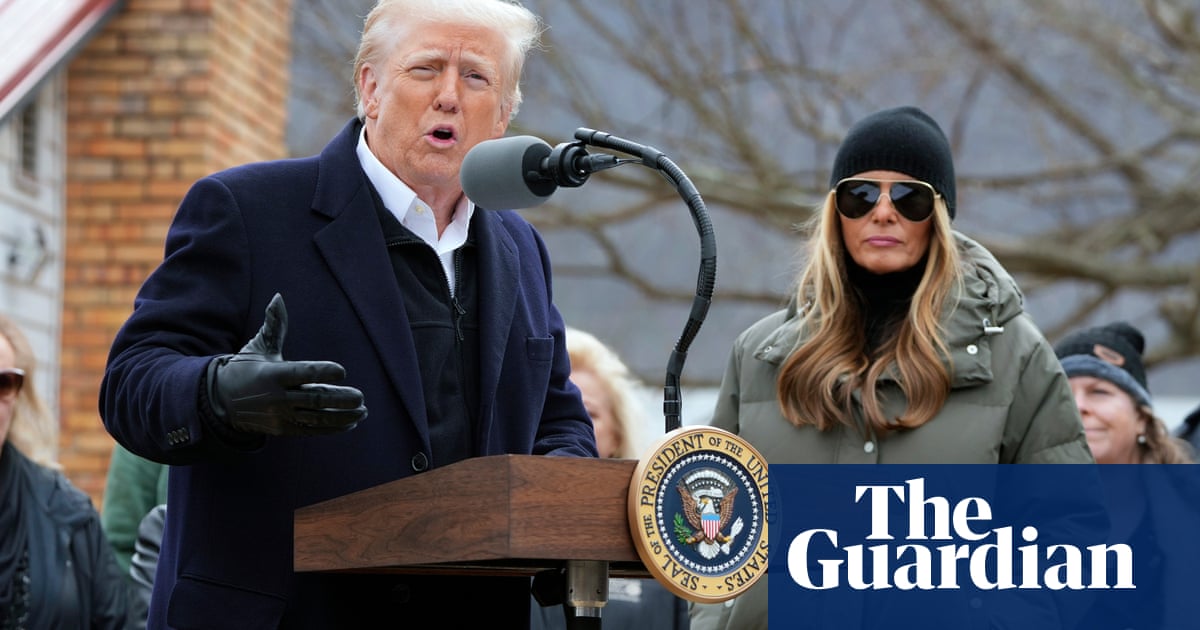Donald Trump has tasked the attorney general in two executive orders to conduct far-reaching investigations into the previous administration, using the weight of the justice department to pursue what are effectively politically charged reviews into his personal grievances.
The orders the president signed on Monday to end the “weaponization of the federal government” and the “government censorship of speech” in the Biden administration directed the attorney general to review actions over the last four years and prepare a final report.
Incoming administrations always set their priorities in the first days and Trump’s second term is no different from any of his predecessors in that respect. Trump also signed executive orders instructing the department to bring more criminal cases connected to the southern border.
The fact that the investigations will be done outside of the White House means they could be less susceptible to political interference by West Wing aides and leaves open the possibility that the investigative work is conducted in part at least by career attorneys at the justice department.
But the weaponization order was particularly unusual in making the incoming attorney general examine alleged misconduct at the justice department – rather than the department’s office of professional responsibility or inspector general – and then to deliver findings to a political appointee at the White House.
The attorney general does not typically prepare reports for the deputy chief of staff for policy, Stephen Miller. Under the justice department’s no-contacts policy, designed to prevent political interference in investigations, the attorney general is only supposed to interact, at a staff level, with the White House counsel or the deputy counsel.
Taken together, the various aspects of the weaponization order foreshadow the major role Trump wants the justice department to play in his second term and harness its far-reaching power to enact his agenda.
And while the order did not detail specific allegations to be looked at, it referenced “third-world weaponization of prosecutorial power to upend the democratic process” in language that echoed Trump’s attacks on the criminal cases brought by former special counsel Jack Smith.
The White House did not respond to a request for comment.
During the election, Trump repeatedly railed against the criminal prosecutions over allegations he mishandled classified documents and over his efforts to overturn the 2020 election results and vowed to fire Smith in “two seconds” if re-elected. Smith resigned before Trump returned to office.
In his first term, Trump repeatedly used the imprimatur of the justice department to investigate politically sensitive matters that he was invested in personally but wanted to pretend he had nothing to do with.
When Trump fired James Comey as FBI director in 2017, he initially cited a memo written by then deputy attorney general Rod Rosenstein as the rationale for his ouster. Later, it emerged Trump had soured on Comey in part after he declined to drop a criminal investigation into his national security adviser.
after newsletter promotion
Towards the end of his presidency, Trump pressured his then attorney general, Bill Barr, to announce that the justice department was investigating fraud in the 2020 election, even though the department was not and had no jurisdiction to do so, as part of an effort to contest the results in seven battleground states.
How Trump’s incoming attorney general pick, Pam Bondi, will grapple with the weaponization order remains to be seen. At her Senate confirmation hearing, she pledged to resist political interference from the White House, maintain the contacts policy, and that there would be no “enemies list”.
Until Bondi’s nomination is approved by the full Senate, James McHenry III, who ran the justice department’s immigration courts during Trump’s first term, is serving as the acting attorney general. Other Trump appointees, like the acting deputy attorney general, Emil Bove, and Bondi’s chief of staff, Chad Mizelle, are already in place.
Trump’s weaponization order also stated as its intended goal to “correct past misconduct”, repeating a track record he developed during his first term of seeking payback against political opponents and entire agencies like the FBI when it examined the Trump campaigns ties to Russia.
But the execution of Trump’s payback attempts had mixed results. The special counsel investigation into the FBI’s handling of the Russia inquiry did not arrive before the 2020 election as he had hoped, and the investigation itself yielded no charges against any high-level FBI or intelligence officials.

 German (DE)
German (DE)  English (US)
English (US)  Spanish (ES)
Spanish (ES)  French (FR)
French (FR)  Hindi (IN)
Hindi (IN)  Italian (IT)
Italian (IT)  Russian (RU)
Russian (RU)  7 hours ago
7 hours ago
























Comments